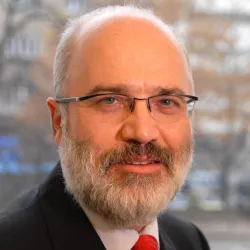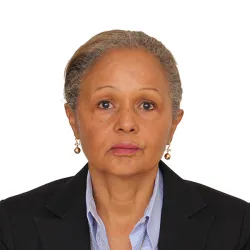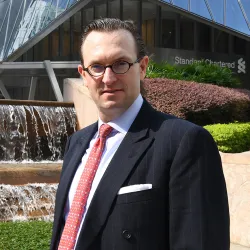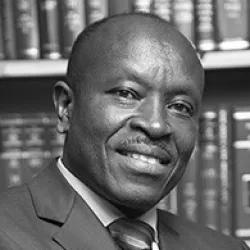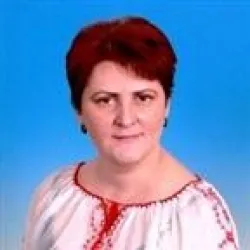Central Bank Board: Good Governance, Resilience and Enhanced Performance 2022
Central Bank Board: Good Governance, Resilience and Enhanced Performance 2022
Central Bank Board: Good Governance, Resilience and Enhanced Performance
September 19 – 22
Live Content sessions held: 9am–1pm (EDT) | 2pm–6pm (BST) | 9pm–1am (SGT)
Chair: Audun Grønn, former special advisor to the governor, Norges Bank
What central banks are asked to do is changing. For institutions that pride themselves on continuity and for whom credibility is their stock-in-trade, this is a pivotal time. Three dynamics are most pressing. Firstly, central banks must contend with the new world of rising inflation and normalising monetary policy. Second, they are being asked to adapt their mandate and therefore policies and structure to tackle climate and offer CBDC. Third, they are having to balance changing culture with retaining identity. Throughout, central bank boards and executives increasingly recognise the role of their institutions as leaders and exemplars, both at home and on the international stage. Yet they must also prepare to tackle market disruptions and the threats of increasing geopolitical and financial instability.
This course is designed to equip central bankers to meet these challenges. Each day will feature three hours of expert-led Live Content to maximise the opportunity to share and learn. The chair will ensure participants have opportunities to network throughout the course, with time set aside for a workshop on implementing key learnings.
Agenda
Two weeks prior to your training course you will be emailed access to our content hub with course materials, including a trial to Central Banking if you are not already subscribed. There will be a combination of articles, reports and presentations that will contribute to two hours of preparation time for the live content. Presentations for the sessions will also be held here subject to the speaker approval.
Evolving mandates: effective oversight of institutional change
14:00 – 14:30
Course introduction
Course introduction session led by the chair
14:00 - 14:30
- Introductions and welcome from the chairperson
- Overview of the training course
- Discussion of the participant expectations
Born 1953, Mr. Grønn holds a graduate degree in economics (cand.oecon. 1979) from the University of Oslo. Work experience since 1980 includes vfarious positions at Norges Bank, including Director of International Department, Director of Statistics Department, and Special Advisor to the Governor. Mr. Grønn spent altogether eight years at IMF’s Executive Board in Washington DC, as Senior Advisor (1989-1992), Alternate Executive Director (2011-2013) and Executive Director (2013-2016), as well as one year at the ECB in Frankfurt as national central bank expert, monetary policy (2005-2006). He retired from his position at Norges Bank in July 2021, and continued as a consultant at the Bank on a part-time basis until December 2023.
14:30 – 15:30
Operating in a multi-mandate environment: a governor’s perspective
14:30 - 15:30
- Dynamics, trends and forces (re)shaping central bank mandates in 2022
- Implication for external responsibilities and internal functioning
- Impacts of the evolving mandates and what this means for the central bank
- Discussion: experiences from participants’ home jurisdictions
Marko Škreb is a former governor of the Croatian National Bank. Currently he is Central banking lead on a Financial sector reform project (FINRA) in Bosnia and Herzegovina, financed by USAID. Before that he was resident project manager for Canada-IMF Capacity building project at the National Bank of Ukraine. He moved to Kyiv from his position as advisor at the International Monetary Fund’s Regional Technical Assistance centre in Accra, Ghana. Before that, he was chief economist and strategist at the second largest commercial bank in Croatia. Mr. Skreb started his professional career teaching at the University of Zagreb. Following academic vocation he joined the Croatian central bank, first as research and statistics director and later on as governor (from 1996 to 2000). In 1997 he was awarded the Central European Annual Awards for Excellence - Best Central Bank Governor by the Banker. Since 2000 he worked as a consultant for the International Monetary Fund and the World Bank in numerous countries, mostly in South-East Europe. He also worked at the Independent Evaluation Office of the IMF in Washington DC in the period 2004-2005. Mr Škreb published a number of articles and edited books, focusing on transition questions and financial issues.
15:30 – 15:45
Break
15:30 - 15:45
15:45 – 16:45
Transformation of the culture and identity of central banks during and post-pandemic
15:45 - 16:45
- How is the Covid-19 pandemic impacting central banks?
- The response of central banks to Covid-19: staffing, technology and ways of working
- How has central bank communication been forced to innovate by the pandemic?
- What lessons have central banks leaders taken from the pandemic to ensure their organisations remain adaptable in the future?
Sheila Mmbijjewe MBS, ACCA (UK) was appointed Deputy Governor of the Central Bank of Kenya with effect from 19th June, 2015. She holds a BA in Accounts and Finance and is a Chartered Accountant England and Wales.
Sheila was the first woman in Kenya to be appointed as an executive director of a publicly quoted commercial bank. She has worked in the commercial banking sector in Kenya, the Monetary Policy Committee of the Central Bank of Kenya, the Financial Reporting Centre of Kenya, Pricewaterhouse Kenya and Deloitte Touché Kenya. More recently Sheila became the first Kenyan woman to be appointed to the Board of a large international publically quoted company.
Sheila was a founding member of the Monetary Policy Committee in Kenya and the Crime and Anti- Money Laundering Act Advisory Committee of Kenya. She has been a director of the Capital Markets of Kenya, the Disclosure Committee of the Capital Markets in Kenya and the Information and Technology Committee of the Nairobi Stock Exchange, Old Mutual Insurance Company Kenya amongst others.
In 2008 she was awarded the Moran of the Burning Spear (MBS), a presidential medal for service to her country.
16:45 – 17:00
Break
16:45 - 17:00
17:00 – 18:00
Climate risk and environmental, social & governance (ESG) agendas: what can central banks contribute?
17:00 - 18:00
- Climate change as a new source of local and systemic risks
- Managing alignment and potential conflicts with existing mandates, practices and cultures
- Examples of frameworks and structures for incorporating ESG and climate risk policies
- Discussion: what are the limits of central bank (and board) intervention?
Born 1953, Mr. Grønn holds a graduate degree in economics (cand.oecon. 1979) from the University of Oslo. Work experience since 1980 includes vfarious positions at Norges Bank, including Director of International Department, Director of Statistics Department, and Special Advisor to the Governor. Mr. Grønn spent altogether eight years at IMF’s Executive Board in Washington DC, as Senior Advisor (1989-1992), Alternate Executive Director (2011-2013) and Executive Director (2013-2016), as well as one year at the ECB in Frankfurt as national central bank expert, monetary policy (2005-2006). He retired from his position at Norges Bank in July 2021, and continued as a consultant at the Bank on a part-time basis until December 2023.
Disruptive innovation: new risks and opportunities for central banking
14:00 – 15:00
Fintech and innovation: what board members need to know
14:00 - 15:00
- What is the impact of technology on the oversight framework?
- How can fintech and innovation improve central bank operations?
- Why is financial inclusion important when considering fintech and innovation?
- Examples of central bank use cases
Douglas W. Arner is the Kerry Holdings Professor in Law, RGC Senior Fellow in Digital Finance and Sustainable Development and Associate Director of the HKU-Standard Chartered Foundation FinTech Academy at the University of Hong Kong. In addition, he is Associate Dean (Taught Postgraduate and Development) of the Faculty of Law at HKU and co-founder and former Director of HKU’s Asian Institute of International Financial Law, as well as Faculty Director and co-founder of the LLM in Compliance and Regulation, the LLM in Corporate and Financial Law, the Law, Innovation, Technology and Entrepreneurship (LITE), and the East Asian International Economic Law and Policy Programmes. Douglas served as Head of the HKU Department of Law from 2011-2014, as Director of the Duke University-HKU Asia America Institute in Transnational Law from 2005-2016, and as an inaugural member of the Hong Kong Financial Services Development Council from 2013-2019. In 2020 he was awarded an inaugural Hong Kong Research Grants Council Senior Fellowship to study the role of digital finance in financial inclusion and the UN Sustainable Development Goals. Douglas is a Visiting Professor and Senior Visiting Fellow of Melbourne Law School of the University of Melbourne, a Visiting Professorial Fellow of the Faculty of Law of UNSW Sydney, a non-executive director of NASDAQ and Euronext listed biotechnology firm Aptorum Group, an Advisory Board Member of the Global Impact FinTech (GIFT) Forum, Policy 4.0 and of the Centre for Finance, Technology and Entrepreneurship (CFTE), and co-founder and an executive board member of the Asia Pacific Structured Finance Association. Douglas has published eighteen books and more than 200 articles, chapters and reports on international financial law and regulation, including most recently Reconceptualising Global Finance and its Regulation (Cambridge 2016) (with Ross Buckley and Emilios Avgouleas) and The RegTech Book (Wiley 2019 (Janos Barberis and Ross Buckley). His recent papers are available on SSRN at https://papers.ssrn.com/sol3/cf_dev/AbsByAuth.cfm?per_id=524849 , where he is among the top 50 authors in the world and among the top 15 authors in the area of law by total downloads. Douglas led the development of Introduction to FinTech – launched with edX in May 2018 and now with over 100,000 learners spanning almost every country in the world – and the foundation of the edx-HKU Online Professional Certificate in FinTech. In addition, he has served as a consultant with, among others, the World Bank, Asian Development Bank, UN, APEC, Alliance for Financial Inclusion, and European Bank for Reconstruction and Development. He has lectured, co-organised conferences and seminars and been involved with financial sector reform projects around the world. Douglas has been a visiting professor or fellow at Duke, Harvard, the Hong Kong Institute for Monetary Research, IDC Herzliya, McGill, Melbourne, National University of Singapore, University of New South Wales, Shanghai University of Finance and Economics, and Zurich, among others.Douglas W. Arner is the Kerry Holdings Professor in Law, RGC Senior Fellow in Digital Finance and Sustainable Development and Associate Director of the HKU-Standard Chartered Foundation FinTech Academy at the University of Hong Kong. In addition, he is Associate Dean (Taught Postgraduate and Development) of the Faculty of Law at HKU and co-founder and former Director of HKU’s Asian Institute of International Financial Law, as well as Faculty Director and co-founder of the LLM in Compliance and Regulation, the LLM in Corporate and Financial Law, the Law, Innovation, Technology and Entrepreneurship (LITE), and the East Asian International Economic Law and Policy Programmes. Douglas served as Head of the HKU Department of Law from 2011-2014, as Director of the Duke University-HKU Asia America Institute in Transnational Law from 2005-2016, and as an inaugural member of the Hong Kong Financial Services Development Council from 2013-2019. In 2020 he was awarded an inaugural Hong Kong Research Grants Council Senior Fellowship to study the role of digital finance in financial inclusion and the UN Sustainable Development Goals. Douglas is a Visiting Professor and Senior Visiting Fellow of Melbourne Law School of the University of Melbourne, a Visiting Professorial Fellow of the Faculty of Law of UNSW Sydney, a non-executive director of NASDAQ and Euronext listed biotechnology firm Aptorum Group, an Advisory Board Member of the Global Impact FinTech (GIFT) Forum, Policy 4.0 and of the Centre for Finance, Technology and Entrepreneurship (CFTE), and co-founder and an executive board member of the Asia Pacific Structured Finance Association. Douglas has published eighteen books and more than 200 articles, chapters and reports on international financial law and regulation, including most recently Reconceptualising Global Finance and its Regulation (Cambridge 2016) (with Ross Buckley and Emilios Avgouleas) and The RegTech Book (Wiley 2019 (Janos Barberis and Ross Buckley). His recent papers are available on SSRN at https://papers.ssrn.com/sol3/cf_dev/AbsByAuth.cfm?per_id=524849 , where he is among the top 50 authors in the world and among the top 15 authors in the area of law by total downloads. Douglas led the development of Introduction to FinTech – launched with edX in May 2018 and now with over 100,000 learners spanning almost every country in the world – and the foundation of the edx-HKU Online Professional Certificate in FinTech. In addition, he has served as a consultant with, among others, the World Bank, Asian Development Bank, UN, APEC, Alliance for Financial Inclusion, and European Bank for Reconstruction and Development. He has lectured, co-organised conferences and seminars and been involved with financial sector reform projects around the world. Douglas has been a visiting professor or fellow at Duke, Harvard, the Hong Kong Institute for Monetary Research, IDC Herzliya, McGill, Melbourne, National University of Singapore, University of New South Wales, Shanghai University of Finance and Economics, and Zurich, among others.
15:00 – 15:15
Break
15:00 - 15:15
15:15 – 16:15
Digital money issuance, policy and regulation: where do central banks stand?
15:15 - 16:15
- Taxonomy of digital money: CBDCs, wholesale digital tokens, stablecoins and crypto assets
- Implications for central banks: policies, roles and responsibilities
- Overview of key financial, operations and regulatory risks
- Discussion: how to educate markets, players and the public
Ms Sharmyn Powell has been employed at the Eastern Caribbean Central Bank for over 25 years and currently holds the position of Chief Risk Officer. She leads the Office of Corporate Strategy and Risk Management with responsibility for Enterprise Risk Management, Compliance, Strategic Plan development and monitoring and Business Continuity Management.
Prior to assuming this role, she served in various capacities at the Bank including, Deputy Director, Accounting Department, Director, Currency Management Department and Director, Support Services Management Department. She is the Chairperson of the Bank’s Fintech Working Group, which is leading the implementation of the DCash Pilot Project for the issuance of a block-chain based digital version of the EC Currency.
Ms Powell is a Certified Accountant (ACCA), and also carries the designations of Chartered Director (C. Dir) and Audit Committee Certified (A.C.C).
16:15 – 16:45
Networking break
16:15 - 16:45
16:45 – 17:45
Understanding cyber resilience in an era of digital disruption
16:45 - 17:45
- Implications of cyber risk for central bank mandates, policy functions and corporate services
- Cyber-attack: key features of effective crisis management plan and business continuity
- Roles and responsibilities of the board in a cyber-attack crisis
- Discussion: what is the board’s role during a cyber-attack?
Haroldo Jayme Martins Froes Cruz
Head of the Information Technology Department
Central Bank of Brazil
Holding a College degree in Mathematics, and two MBAs in Systems Analyses I have been working for the Information Technology Department of the Central Bank of Brazil since 1993, becoming the Head of the Information Technology Department in April 2019. I work at Central Bank of Brazil for 29 years and I am the Head of the Information Technology Department since April 2019.
Accountability, transparency and performance
14:00 – 15:00
Interactive debate and closing remarks
14:00 - 15:00
Each delegate should choose, before the seminar, a topic among those dealt with in the seminar and do a short presentation, comparing her or his ideas before the seminar with her or his take of the presentation delivered at the seminar. The chair will moderate the panel and summarize the course
Francesco Papadia is chair of primary collateralised securities, chair of the selection panel of the Hellenic Financial Stability Fund, resident fellow of Bruegel and lectures at various universities. Between June 1998 and May 2012 he was director general for market operations at the European Central Bank. Before that he held different positions at Research Department and Foreign Department at the Bank of Italy. Between 1980 and 1983 he was economic advisor at the Directorate General for Economic and Financial Affairs of the European Commission. From 1974 to 1979 he served as economist in the Research Department of the Bank of Italy. He holds a degree in law from the University of Rome and did his postgraduate studies in economics at Istao, Ancona and at the London Business School. He has written numerous articles and books.
15:00 – 15:15
Break
15:00 - 15:15
15:15 – 16:15
Financial strength: what does it mean for central banks – and how to achieve it
15:15 - 16:15
- Role of accounting in maintaining central banking independence
- What does “financial strength” mean in central banking contexts?
- Implications for the relationship with the public and stakeholders
- Discussion: how to determine the appropriate level of financial resources needed for central banks to perform their functions
Robin Darbyshire is a chartered accountant who has worked, as an independent consultant for 10 years, mainly on central bank issues. He has undertaken a number of projects for the International Monetary Fund, including implementation of International Financial Reporting Standards (IFRS) in central banks. He has also worked on a payments system at a middle eastern central bank. Previously he spent 19 years with the Bank of England, for 17 of which he was responsible for the Bank’s accounts. He was a founder member of the committee that devised the accounting framework and policies for the European System of Central Banks and has recently undertaken projects for the European Central Bank related to Eurosystem accounting. He has written a number of articles on issues in central bank accounting and regularly speaks at conferences on central bank finances.
16:15 – 16:45
Networking break
15:15 - 15:45
16:45 – 17:45
Maintaining central bank independence
16:45 - 17:45
- Key challenges to central bank independence in 2022
- Role and responsibilities of the board in safeguarding independence
- Examples of legal and governance measures available and effected
- Discussion: accountability and central bank independence as mutual enablers
Mohammed Nyaoga is the Chairperson of the Central Bank of Kenya Board of Directors and the Chairperson to the International Monetary Fund (Washington) external Experts Panel. Mr. Nyaoga is a Senior Counsel and a Senior Partner at the law firm of Mohammed Muigai LLP. He holds LLB and LLM degrees from the University of Nairobi and Diploma in law from the Kenya School of Law. He is also currently a PhD student researching on "The Role of Regulation and Corporate Governance of Banks in Kenya". He is a Certified Public Secretary (CPS); holds certificates in Corporate Governance from Commonwealth Association of Corporate Governance, Certificate from American Securities and Exchange Commission; a Certified Company Director and a Member of the Institute of Directors of Kenya. He specializes in Corporate Finance, Civil, Commercial, Litigation and Corporate Governance. In addition to the practice of Law, he has been Vice-Chairman of the Law Reform Commission, Chairman of its Business Laws Committee and Chairman of the Mining Licences Task Force. He has also been a Director of Capital Markets Authority, Chairman of International Commission of Jurists, Council member of Law Society of Kenya, Special Board Corporate Governance Advisor and Chairman of EcoBank Kenya. He has also been Chairman at the Commission of Inquiry into the suspension of the County Government of Makueni.
In addition, he is a certified training consultant in corporate governance with the Centre for Corporate Governance for over 15 years where he has trained over 10,000 directors in Kenya and in Africa at large. He has also been a consultant and Trainer for State University of New York on procurement (SUNNY Kenya) and a Lecturer (LLM Programme) University of Nairobi, School of Law (Business Law Department) on Public Procurement and accounting law. He is currently a regular Trainer/ Speaker at Central Banking Publications (UK) Governance Training Series at Windsor, Cambridge and Oxford and also one of authors and editors of Central Banking Publications.
Demonstrating value to stakeholders
14:00 – 15:00
Understanding and overseeing central bank performance
14:00 - 15:00
- What different types of performance can be measured?
- How can central banks use internal control mechanisms to monitor performance of structures, departments and individuals?
- What is the motive for this measurement?
- How does measuring performance link to the role of the board in strategic planning and communication?
Chair: Kenneth Sullivan
Director
Central bank consulting and former senior financial expert, International Monetary Fund
Kenneth Sullivan was until 2015 a senior financial sector expert with the International Monetary Fund. Previously, he spent seven years at the Reserve Bank of New Zealand as chief manager of both Accounting and Corporate Services where the bank won accounting prizes for the transparency of its published financial statements. Prior to that he provided a financial management information system consultancy, held senior accounting roles in insurance and wholesaling, and worked in education. Starting in 1993 he served as accounting expert on IMF missions, providing accounting technical assistance to central banks around the world, organized and presented at central bank accounting workshops and participated in Financial Sector Assessment Program and Safeguard Assessment
15:00 – 15:15
Break
15:00 - 15:15
15:15 – 16:15
Communication: demonstrating good governance and safeguarding reputation
15:15 - 16:15
- Governance, reputation and legitimacy as the pillars of a resilient central bank
- Role of communications in management of reputational risk
- Examples of strategies and approaches to communication - cross-country comparisons
- Discussion: how to measure the effectiveness of communications?
Mirela Roman
Strategy advisor to the board (external communication and public relations)
National Bank of Romania
Following the graduation IT College and the Academy of Economic Studies in Bucharest, Mirela Roman joined the Monetary Policy Department of the National Bank of Romania for almost three years up to 1994 when switched to gain almost 12 years of valuable experience as an economics correspondent at Reuters News Agency, working in Bucharest, London, Prague, Warsaw or Copenhagen. In 2005 she rejoined NBR as an Adviser to the Governor and has run a newly created Communication Department for eight years before taking a new challenge: the strategy path. Economic analysis, news coverage, project development and team coordination defined her business for years, while her focus was growing with memberships in the local Foreign Press Association, the Romanian-Chinese Association, the Club of Rome Romanian arm, Ethics Board of the ICCO-Affiliated Romanian Association of Public Relations as well as a lecturer in Winsor or Cambridge training series by Central Banking Publications for a decade now.
16:15 – 16:30
Break
16:15 - 16:30
16:30 – 17:15
Closing remarks and participant action plans
Concluding session led by the chair
16:30 - 17:15
- Summary of the course
- Discussion of the observed trends and case studies
- Application of learning points in the participants’ home organisations
- Preparation of action points
Born 1953, Mr. Grønn holds a graduate degree in economics (cand.oecon. 1979) from the University of Oslo. Work experience since 1980 includes vfarious positions at Norges Bank, including Director of International Department, Director of Statistics Department, and Special Advisor to the Governor. Mr. Grønn spent altogether eight years at IMF’s Executive Board in Washington DC, as Senior Advisor (1989-1992), Alternate Executive Director (2011-2013) and Executive Director (2013-2016), as well as one year at the ECB in Frankfurt as national central bank expert, monetary policy (2005-2006). He retired from his position at Norges Bank in July 2021, and continued as a consultant at the Bank on a part-time basis until December 2023.
Learning outcomes
At the conclusion of the training, participants will be able to:
- Understand the changing demands of stakeholders and how to manage the impact on culture and identity
- Develop good practices in overseeing performance and demonstrating accountability
- Understand how to effectively integrate environmental, social and governance (ESG) initiatives
- Gain insights into CBDC development and implementation
- Create a framework for increasing cyber risk awareness across the institution
Chair

Audun Grønn
Former IMF Executive Director and Central Banker (Norges Bank)
Born 1953, Mr. Grønn holds a graduate degree in economics (cand.oecon. 1979) from the University of Oslo. Work experience since 1980 includes vfarious positions at Norges Bank, including Director of International Department, Director of Statistics Department, and Special Advisor to the Governor. Mr. Grønn spent altogether eight years at IMF’s Executive Board in Washington DC, as Senior Advisor (1989-1992), Alternate Executive Director (2011-2013) and Executive Director (2013-2016), as well as one year at the ECB in Frankfurt as national central bank expert, monetary policy (2005-2006). He retired from his position at Norges Bank in July 2021, and continued as a consultant at the Bank on a part-time basis until December 2023.
